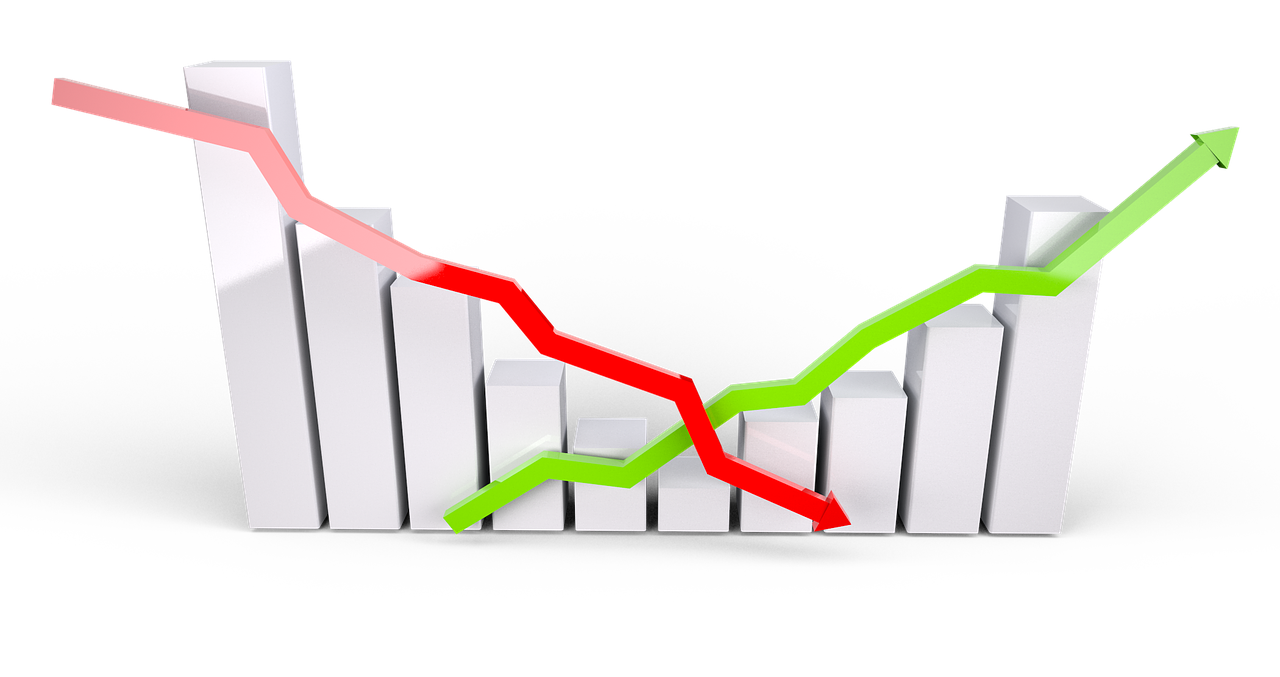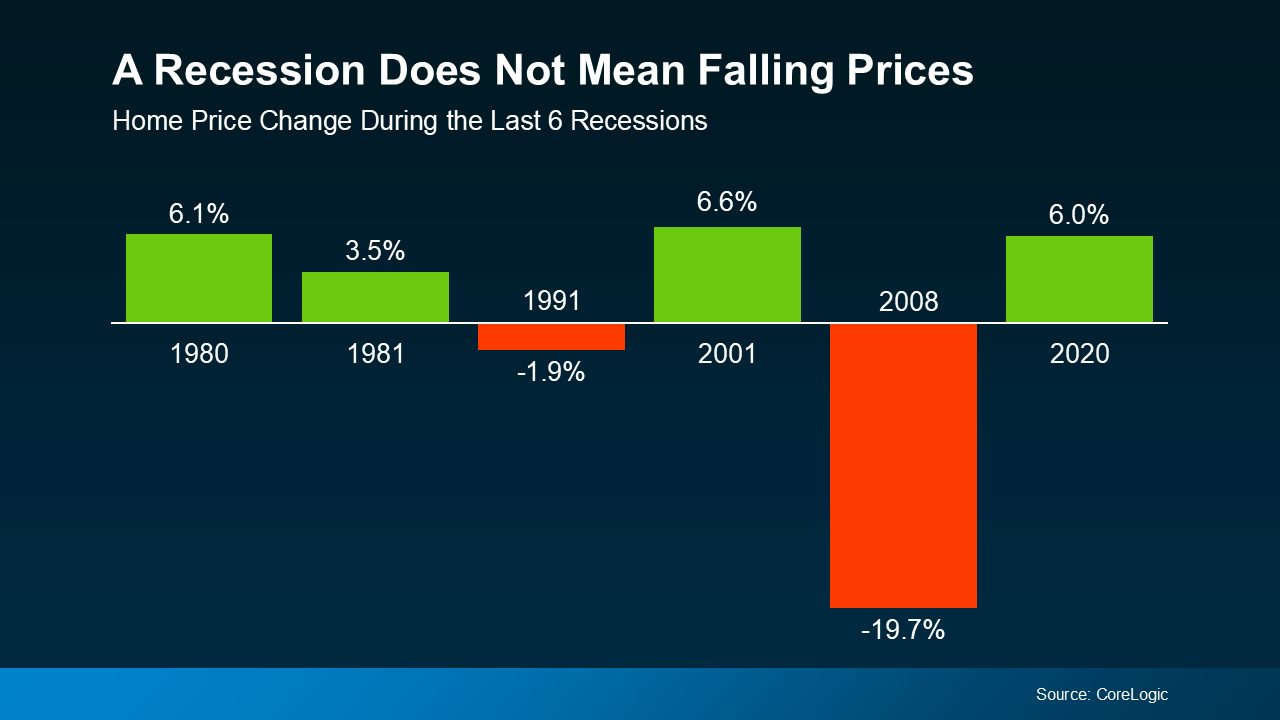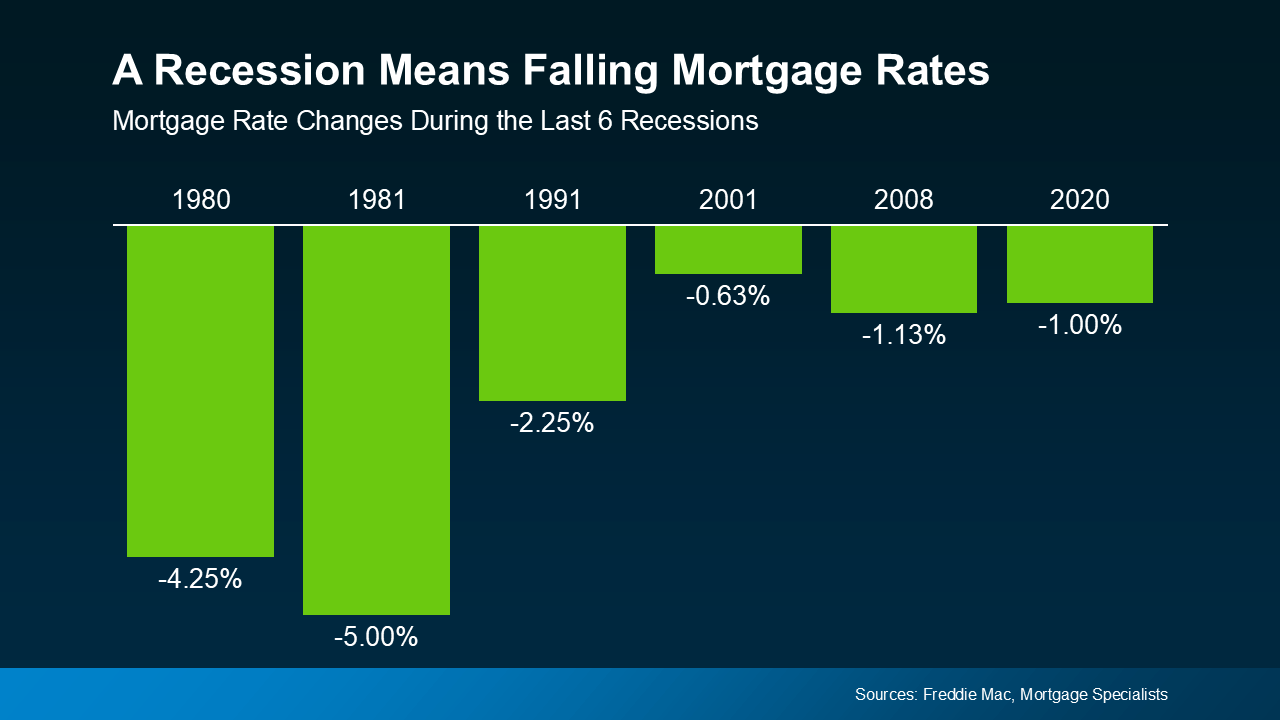Recession fears are top of mind for many folks. Here’s a look at what has happened to the housing markets during recessions over the past 40 years.
Even though this is a topic that’s been covered in other articles I’ve published, given the conversations I’ve had with folks recently, recession fears are something that’s on our mind. Planning in a turbulent economy is tricky, so I believe this is something that’s worth repeating.
Recessions are not always doom. For those of us who are prepared with relevant information, it can be an opportunity.
Here’s a look at how the housing market has reacted to recessions in the past. Actual data. Not just our suspicions.

Recession talk is all over the news, and the odds of a recession are rising this year. And that leaves people wondering what would happen to the housing market if we do go into a recession.
Let’s take a look at some historical data to show what’s happened in housing for each recession going all the way back to the 1980s.
A Recession Doesn’t Mean Home Prices Will Fall
Many people think that if a recession hits, home prices will fall like they did in 2008. But that was an exception, not the rule. It was the only time we saw such a steep drop in prices. And it hasn’t happened since.
In fact, according to data from CoreLogic, in four of the last six recessions, home prices actually went up (see graph below):
So, if you’re thinking about buying or selling a home, don’t assume a recession will lead to a crash in home prices. The data simply doesn’t support that idea. Instead, home prices usually follow whatever trajectory they’re already on. And right now, nationally, home prices are still rising at a more normal pace.
Mortgage Rates Typically Decline During Recessions
While home prices tend to stay on their current path, mortgage rates usually drop during economic slowdowns. Again, looking at data from the last six recessions, mortgage rates fell each time (see graph below):
Even though a recession means mortgage rates could decline based on the data, don’t expect the return of a 3% rate.
Recessions do not last forever. Since that’s the case, a recession can give you an opportunity to increase your holdings when part of the costs are under pressure (maybe a price dip, or lower mortgage rates). Plan with knowledge that neither the recessin, nor lower rates, nor prices are permanent. Over the long term, home prices rise.
Here’s another article that shows the long-term value of owning real estate (there are several on my site). Holding good assets helps us weather economic storms more easily, and when the market looks troubled, be ready with information and jump in. You’ll be hapy you did!
A very popular second property folks buy is a vacation home. Check out this quick article on that topic… Why a Vacation Home Is the Ultimate Summer Upgrade
Bottom Line
The answer to the recession question is still unknown, but the odds have gone up. That doesn’t mean you have to wonder about the impact on the housing market – historical data tells us what usually happens. Now you can start preparing.
If you’d like a marketing consultation to help you get more prepared, reach out to me to set an appointment.
When you hear talk about a possible recession, what concerns or questions come to mind about buying or selling a home?


 Facebook
Facebook
 X
X
 Pinterest
Pinterest
 Copy Link
Copy Link


